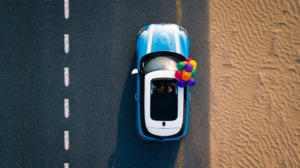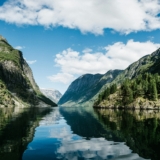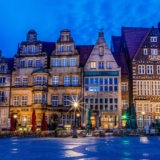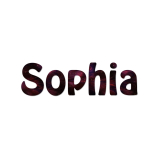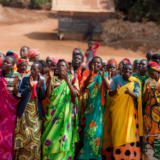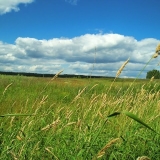When it comes to naming a newborn or simply changing one’s name during adulthood, one has countless options to choose from. Therefore, finding the perfect name may be both a fascinating, enjoyable activity and a challenging endeavor.
Although parents have the freedom to select the name of their newborns, the state can get involved if the name of their choice risks to expose children to mocking and teasing, affecting their well-being. Given names help individuals to stand out from the crowd and parents nowadays look for special, distinctive names for their children. But the line between uncommon and hilarious can easily become indistinct. So what happens when certain names are considered “too” unique or eccentric?
We will explore some examples of unusual banned names which made the headlines and the various regulations which ensure the government that none of these names will be in use. While there are states which do not impose strict laws, offering parents the liberty to pick almost any name for their children, in many other parts of the world the government interferes a lot more in the parents’ decision making process – it rejects, bans and even suggests proper name alternatives. The laws concerning baby-naming limitations differ greatly from one state to another, as every country develops its own criteria for determining the legality of names. Such norms take into account the following aspects:
1. Gender accuracy
In countries like Italy, Germany and France, given names must indicate accurately the gender of the baby. In this sense, while Blue is an accepted name in the United States, it is considered illegal in Italy. After attempting to name their daughter Blu (the Italian spelling of Blue), a couple from Milan was advised to choose another name, as this one could not be linked to any gender. Similarly, the name Matti was rejected in Germany because it failed to indicate that the child was a boy. Another example is offered by France, as Liam is not considered a suitable name for a girl and Ambre a proper name for a boy.
2. Avoidance of brand names, food, animals, etc.
While some parents may find Nutella the perfect name to express the sweet nature of their children, French courts do not share the same opinion. Car brands are not any luckier, as the name Mini Cooper was rejected as well in France. Also, there has been an increased usage of the name Ikea (especially in the United States), which ended up being banned in its home country, Sweden. Here are some other examples of banned or rejected names:
- symbols or numerals: 007 (Malaysia), 1069 (North Dakota), III (California), @ (China), “.” (pronounced “full stop”; New Zealand);
- days of the week: Venerdi (meaning “Friday”; Italy);
- emotional states: Joyeux (meaning “happy”; France), Patriste (reference to “pas triste”, meaning “not sad”; France);
- bands: Metallica (Sweden), Nirvana (Portugal);
- planets: Pluto (Denmark);
- animals: Monkey (Denmark), Stallion (New Zealand);
- social networks: Facebook (Mexico), Twitter (Mexico); however, Facebook has been used as a male name in countries like Egypt;
- fictional characters: Babar (France), Hermione (Mexico), Batman (Mexico), Terminator (Mexico), Superman (Sweden), James Bond (Mexico);
- famous people: Prince William (France), Queen Victoria (New Zealand), Elvis (Sweden);
- titles and ranks: Princess (New Zealand), Baron (New Zealand), Messiah (New Zealand), Duke (New Zealand); nevertheless, ranks and titles can be used as given names the United States.
New Zealand is the home for some of the most famous forbidden names, including Talula Does the Hula from Hawaii and 4Real, which were regarded by the court as the results of parental poor judgement and interpreted as endangering the comfort and happiness of the children.
In the process of naming their newborns, parents have also been taking inspiration from the names of various types of food. Strawberries and spinach may be considered healthy and delicious food options, but not proper names in many parts of the world. While Malaysia banned any name related to fruits and vegetables, Australia forbade the name Spinach and France the name Fraise (meaning Strawberry), fearing they might provoke embarrassment to children. It may come as no surprise that the names Fish and Chips, intended for twins, ended up forbidden as well in New Zealand.
3. Name popularity
Who would have thought that a name’s popularity could become a problem? As it turns out, the increased usage of certain names is a valid reason for banning them in certain parts of the world. In Rosario, Argentina, Lionel Messi’s hometown, the practice of naming children after the football player became so frequent that the name Messi became banned in the town.
4. National identity
In countries where social traditions occupy an important aspect of everyday life, the list of names forbidden by the government is based on origin and religious grounds. If Saudi Arabia banned names such as Linda, for their strong belonging to Western societies, Morocco forbade names such as Sarah, due to their foreign spelling.
While some names are rejected entirely, some others need only a small adjustment in order to be accepted. An example in this regard is the name Lucía, which is allowed in California if the accent is removed. In other cases, names banned in one country can be changed in more permissive states, such as in the case of the American man who traveled from Ohio to Utah to change his name into Santa Claus. A controversial name which was banned without hesitation arose out of dissatisfaction with Sweden’s naming regulations. As a sign of protest against the inflexibility of the naming laws, a couple intended to name their child Brfxxccxxmnpcccclllmmnprxvclmnckssqlbb11116 (pronounced ”Albin”). Their wish was, of course, rejected by the court.
Despite all of the laws concerning naming practices, there are still many names which are not affected by any regulation and are used in certain countries. Some of them include:
- Nemo (Germany)
- Lego (Sweden)
- Google (Sweden)
- Bambi (Iceland)
- Number 16 Bus Shelter (New Zealand)
We are sure that such special names will never cease to exist as, even if laws attempt to draw the borders of the naming norms, people will always find ways to express themselves creatively, including through picking names full of personality – colorful and unexpected.



